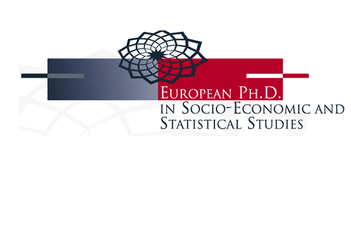SeSS.EuroPhD
European PhD Network in Socio-Economic and Statistical Studies (aka SESS)

Socio-Economic and Statistical Studies is a network of collaborating PhD programmes in
- sociology
- economics
- demography
- and/or related fields.
The objective of the European PhD Network in Socio-Economic and Statistical Studies (SESS EuroPhD) is the scientific training of scholars who intend to dedicate themselves to academic careers or to serve as experts in national or international organizations where they are called to analyse social and economic data and address social issues with a broad perspective.
The network offers an additional layer of skill/experience/expertise on top of what each individual participating PhD programme offers. These additional benefits include student long-term exchanges, short-term staff mobility, an internationalized dissertation writing and defence process, and also possible joint supervision (cotutelle).
The network helps students comply with the requirements for the “Doctor Europeus degree” (i.e., “European Doctorate”):
- The student shall spend at least 3 months abroad - working at their dissertation at one of the cooperating institutions other than their home university.
- The dissertation shall be written in English.
- There are at least two dissertation reviews (written in English) by reviewers from two different cooperating institutions other than the student’s home university.
- At least one member of the dissertation defence committee is international (i.e., from a country other than where the student’s university is based).
- The language of the viva is English.
The cooperation between participating institutions is strengthened also via:
- Co-supervision of dissertations (cotutelle).
- Short-term faulty exchanges.
- Jointly organized conferences/conference sessions.
SESS conference
There is a short student conference each year, typically in spring semester. Organizational responsibility circulates between participating institutions. Except the travel costs the organizing institution covers the cost of the conference.
Logistics: admissions and money
Each participating institution organizes its own admission procedure. Each student is accepted to one of the participating PhD programmes. No central admission procedure is organized.
Students are financed (subsistence fellowship etc.) by their home institution. Participating institutions may (but are not obliged to) offer incoming fellowships.
Mobility fellowships
Core funding for student and faculty outgoing mobility is provided by the Erasmus+ programme.
Diploma
All students shall notify the local coordinator that they want to be considered for the “Doctor Europeus degree” before submitting their thesis, so that the defence can be organized accordingly. Each participating institutions has slightly different rules to award the “Doctor Europeus degree”.
Admission
Admission procedures at participating institutions
Supervisors
Potential Supervisors at participating institutions
Network + Contacts
EÖTVÖS LORÁND UNIVERSITY BUDAPEST
Doctoral School of Sociology, Faculty of Social Sciences
Prof. Antal Örkeny
E-mail: orkeny@tatk.elte.hu
Prof. György Csepeli
E-mail: csepeli.gyorgy@gmail.com
Associate Prof. Karolina Lendák-Kabók
E-mail: karolina.kabok@tatk.elte.hu
MASARYK UNIVERSITY
Faculty of Social Studies, Department of Sociology
Prof. Martin Kreidl
E-mail: kreidlm@fss.muni.cz
Faculty of Economics and Administration, Department of Public Economics
Dr. Martin Guzi
E-mail: martin.guzi@econ.muni.cz
SAPIENZA UNIVERSITÀ DI ROMA
Giuseppe Attanasi
E-mail: giuseppe.attanasi@uniroma1.it
Flaviana Palmisano
E-mail: flaviana.palmisano@uniroma1.it
HIGHER SCHOOL OF ECONOMIC NATIONAL RESEARCH UNIVERSITY MOSCOW
(Recently suspended)
Olga Savinskaya
E-mail: osavinskaya@hse.rua

